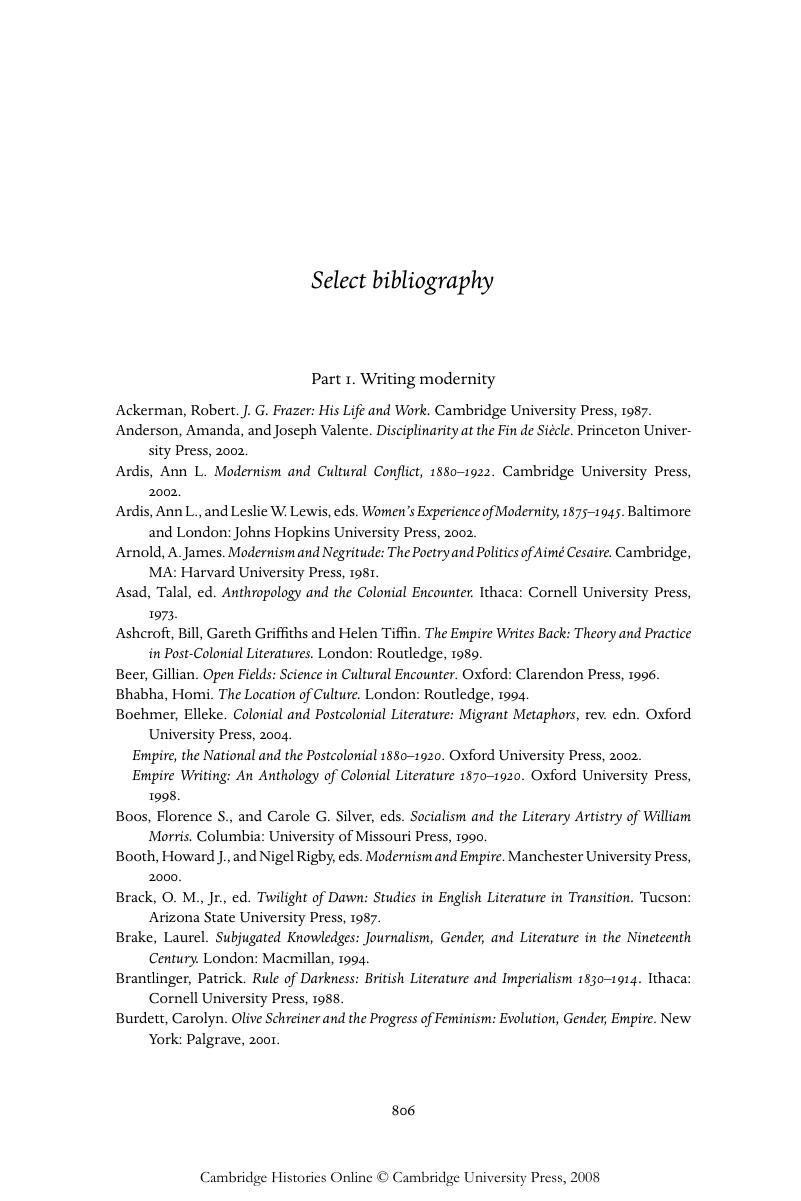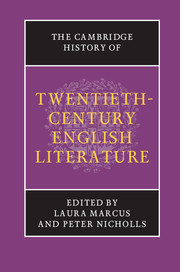Bibliography
Published online by Cambridge University Press: 28 March 2008
Summary

- Type
- Chapter
- Information
- The Cambridge History of Twentieth-Century English Literature , pp. 806 - 841Publisher: Cambridge University PressPrint publication year: 2005

